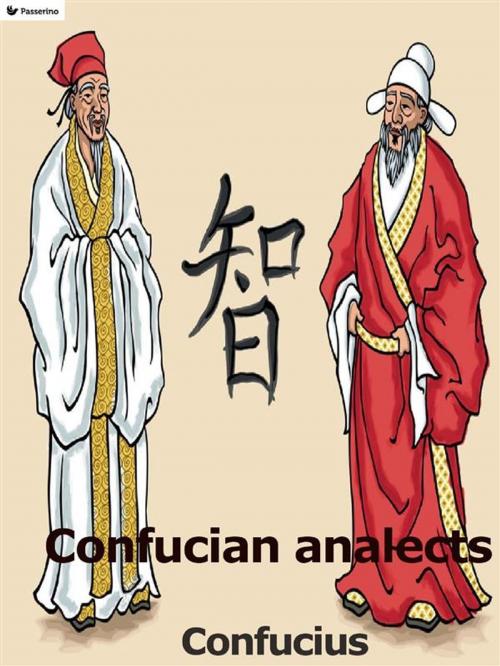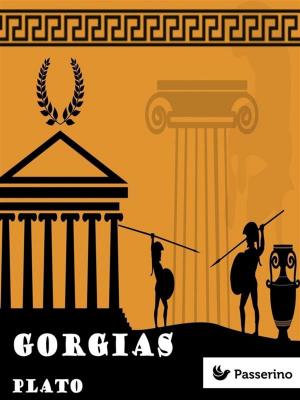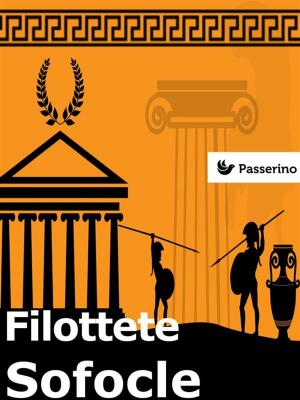Confucian Analects
Nonfiction, Religion & Spirituality, Eastern Religions, Confucianism, Philosophy, Eastern, Ethics & Moral Philosophy| Author: | Confucius | ISBN: | 9788899617028 |
| Publisher: | Passerino Editore | Publication: | October 29, 2015 |
| Imprint: | Language: | English |
| Author: | Confucius |
| ISBN: | 9788899617028 |
| Publisher: | Passerino Editore |
| Publication: | October 29, 2015 |
| Imprint: | |
| Language: | English |
The Analects or "Confucian Analects", also known as the Analects of Confucius, is a collection of sayings and ideas attributed to the Chinese philosopher Confucius.
The Analects has been one of the most widely read and studied books in China for the last 2,000 years, and continues to have a substantial influence on Chinese and East Asian thought and values today.
«In China the line between the religious and non-religious is not clearly drawn. The demarcation between on faith and others that is so important in other cultures tends to be blurred and frequently ignored in a Chinese cultural context»
[Yao Xinzhong – Zhao Yanxia, Chinese Religion. A Contextual Approach, Continuum, London-New York 2010, 1-2]
Confucius (551 B.C. – 479 B.C.) was a Chinese philosopher, whose teachings deeply influenced East Asian life and thought. "Confucius" is a latinization of the Chinese 孔夫子 (Kong Fu Zi), literally "Master Kong", but he is usually referred to in China with a simpler version of this honorific as 孔子 (Kongzi, or Kǒng Zǐ).
Translation by James Legge
James Legge (/lɛɡ/; Chinese: 理雅各; 20 December 1815 – 29 November 1897) was a noted Scottish sinologist, a Scottish Congregationalist, representative of the London Missionary Society in Malacca and Hong Kong (1840–1873), and first Professor of Chinese at Oxford University (1876–1897).
English Edition and Chinese Text.
The Analects or "Confucian Analects", also known as the Analects of Confucius, is a collection of sayings and ideas attributed to the Chinese philosopher Confucius.
The Analects has been one of the most widely read and studied books in China for the last 2,000 years, and continues to have a substantial influence on Chinese and East Asian thought and values today.
«In China the line between the religious and non-religious is not clearly drawn. The demarcation between on faith and others that is so important in other cultures tends to be blurred and frequently ignored in a Chinese cultural context»
[Yao Xinzhong – Zhao Yanxia, Chinese Religion. A Contextual Approach, Continuum, London-New York 2010, 1-2]
Confucius (551 B.C. – 479 B.C.) was a Chinese philosopher, whose teachings deeply influenced East Asian life and thought. "Confucius" is a latinization of the Chinese 孔夫子 (Kong Fu Zi), literally "Master Kong", but he is usually referred to in China with a simpler version of this honorific as 孔子 (Kongzi, or Kǒng Zǐ).
Translation by James Legge
James Legge (/lɛɡ/; Chinese: 理雅各; 20 December 1815 – 29 November 1897) was a noted Scottish sinologist, a Scottish Congregationalist, representative of the London Missionary Society in Malacca and Hong Kong (1840–1873), and first Professor of Chinese at Oxford University (1876–1897).
English Edition and Chinese Text.















